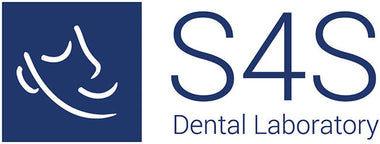Could Your Headaches Be Caused by Jaw Clenching?
Waking up with a headache can be a frustrating way to start the day, especially when the cause isn’t immediately obvious.
For many people, morning headaches are a regular occurrence, often brushed off or blamed on poor sleep or dehydration.
But there is another potential cause that often flies under the radar: clenching your jaw during sleep.
The good news is that it can be managed effectively with the right support and treatment.
What causes jaw clenching?
Jaw clenching, also known as nocturnal bruxism, is more common than you might think.
It is often a subconscious response to stress or tension and tends to happen without people even realising it.
While it might seem like a minor habit, persistent clenching can lead to a range of uncomfortable symptoms, including worn teeth, jaw pain, and frequent headaches.
 The link between jaw clenching and headaches
The link between jaw clenching and headaches
When you clench your jaw, it activates the chewing muscles, particularly the temporalis and masseter.
Overworking these muscles can lead to fatigue and inflammation, which may trigger tension-type headaches or discomfort that spreads across the sides of your head.
In more severe cases, the pressure can irritate the jaw joints, causing pain to radiate to the neck or ears.
You might also experience:
- A sore or tight jaw when you wake up
- Clicking or popping in the jaw
- Difficulty opening your mouth wide
- Discomfort when chewing or speaking
What causes jaw clenching?
Clenching is often linked to stress, poor sleep, or bite misalignment.
While it may happen occasionally, frequent or intense clenching (especially during the night) can lead to long-term problems.
Because it typically happens while you are asleep, many people are unaware they are doing it until symptoms start to appear.
Stress-related clenching can also occur during the day, particularly when concentrating or under pressure, but the effects of overnight clenching are often more severe due to the extended time the muscles remain contracted.
 Can you stop clenching?
Can you stop clenching?
Jaw clenching can feel like an automatic habit that's difficult to control, particularly during sleep, but there are several practical steps that may help reduce how often and how severely it occurs:
- Practise stress management techniques, such as meditation, mindfulness, or deep breathing, particularly before bed
- Stretch or massage the jaw muscles to help them relax before sleep
- Limit caffeine and alcohol in the evening, as both can increase muscle tension and disrupt restful sleep
- Be aware of daytime habits, like clenching during focus or stress – try to keep your teeth slightly apart when not eating or speaking
- Use a warm compress on the sides of the face to ease muscle tightness
These strategies can be helpful, but if clenching is persistent or happens mostly at night, your dentist may be able to help.
How the Sleep Clench Inhibitor (SCi) can help
If clenching is contributing to your headaches, your dentist may recommend a dental appliance to relieve the pressure.
One of the most effective options is the Sleep Clench Inhibitor (SCi).
The SCi works by gently holding your bite in a way that stops your back teeth from meeting.
This helps to calm the jaw muscles and stop them from overworking during the night.
By reducing the strain on these muscles, the SCi can ease the tension that leads to headaches and protect your teeth from wear and damage.
It’s a simple but effective solution that fits comfortably and can make a real difference if clenching is affecting your sleep or day-to-day comfort.
When to speak to your dentist
Left untreated, clenching can lead to long-term damage, so early intervention can make a real difference.
If you have been living with persistent headaches or facial discomfort, it is worth exploring whether clenching could be contributing.
A quick assessment by your dentist can help identify the signs of bruxism and determine whether a device like the SCi is suitable for you.
With the right diagnosis and support, you could enjoy more comfortable mornings and fewer tension headaches.
Simply speak to your nearest SCi dentist today!

